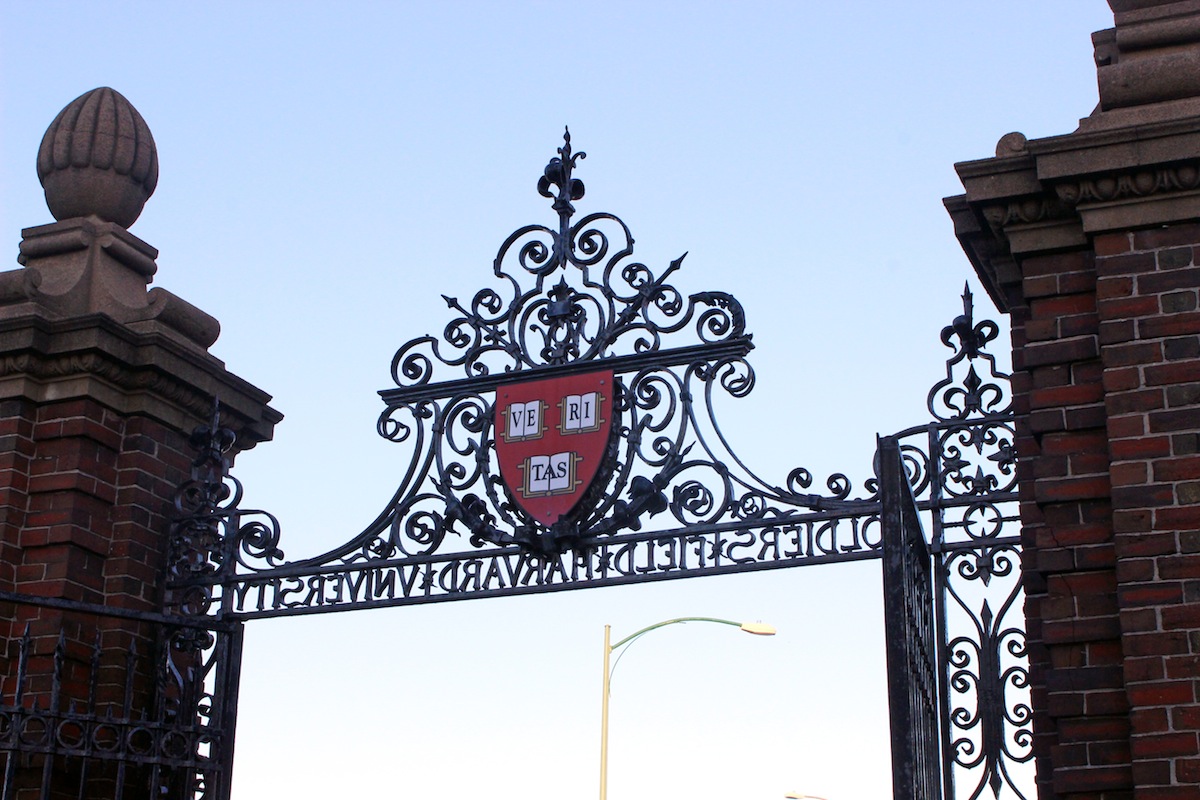Harvard: No, We Didn’t Pay for Our Facebook Followers

Photo by Olga Khvan
When Harvard University became the first school to hit one million Facebook fans on their personal page back in 2011, it was a time to celebrate. The Cambridge institute touted its newfound title as the top social-media savvy university by making a video, and taking jabs at long-time rival and fellow Ivy League school, Yale.
Fast forward three years, and Harvard continues to top the charts when it comes to people pressing that virtual “thumbs up” logo invented by former Harvard student Mark Zuckerberg, with more than 3 million “likes” since they launched their page. But how many of those are real?
That’s the question posed by Lenny Teytelman, cofounder of ZappyLab.com, who was curious about how Harvard led the race in social media reach over any other higher education school in the world. “There is a chance they are likely fake,” Teytelman told Boston, pointing out that much of the engagement Harvard has with fans is coming from Bangladesh.
Part of Teytelman’s question about Harvard was whether the school paid to promote their page to get more followers, much like his own company did when trying to increase visibility and engagement on the social media site.
But officials from the school scoffed at the notion that they handed over cash to get more “likes” on their page. They’re Harvard, they don’t need to pay for followers. “Harvard is an internationally recognized institution with students, faculty, alumni, and other followers around the world,” a spokesperson said in a statement. “Global interest in Harvard is validated by engagement across all our platforms. Social media is among the many tools we use to connect with the Harvard community and with many others interested in the teaching, learning, and research at Harvard.”
Simply put, the school said, “the University did not pay for any of the 3.3 million likes on its official Facebook page.”
Teytelman’s curiosity stemmed from an experience with his startup, which built a site called PubChase. To increase followers for the site, which provides a platform for student researchers and scientists to post blogs about their findings, they set aside a $500 budget to give to Facebook in return for getting their brand in front of more people’s eyes. After they spent just $50 on the service, Teytelman said they stopped because they received 1,000 “likes” in a single day, and all of the profiles pages “didn’t look real.” He said oddly enough, most of them were coming from one location in India. “It was a completely random assortment of likes,” he said.
That’s what made him wonder if, perhaps, Harvard and other schools around the globe fell victim to the same ploy. He noted that other schools with less followers had the most engagement from areas immediately nearby, while the ones with the more “likes” had fans from overseas. In a blog post, Teytelman wrote:
[It’s] very easy to tell which ones fell victim to this by looking at the number and source of the ‘likes’; they all match the location of the school for the universities with fewer than 300,000 ‘likes.’ But the schools that made it to the ‘most popular’ list have ‘likes’ from Dhaka, Bangladesh and Addis Abeba, Ethiopia. The most stunning example here is Harvard with 3.3 million ‘likes.’ Probably about three million of these are fakes. I just hope they did not pay for this, like we did on PubChase.
Teytelman pointed out that the problem could could very likely be the result of so-called “click farms.” Bangladesh, apparently, is a prime place for these practices.
Teytelman also wanted to make one other thing clear about his observations: “I don’t think the problem’s Harvard. I want to make sure people know the problem is Facebook. They have for years now been denying that ‘likes’ you buy from them are fake,” Teytelman said.
The social media site said as much to Business Insider, when the publication picked up Teytelman’s blog post this week and asked about the strange pattern of followers coming from locations that aren’t near Harvard. “There are many ways people find pages to like on Facebook—from someone navigating directly to the page to like it, to people seeing advertising campaigns, or from pages appearing in ‘Pages You May Like,'” they told BI. “Some Pages, including universities with an international reputation, often receive a large number of likes from people around the world and have fans that are dispersed geographically and demographically. These pages are often also featured in ‘Pages You May Like’ and receive likes from people who aspire to attend or visit the university.”
So maybe Harvard really is just that popular—especially in Bangladesh.

